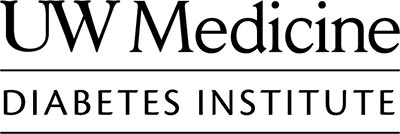Stephanie Page, MD, PhD
Email: page@uw.edu
- Robert B. McMillen Professor of Medicine in Lipid Research
- Head, Division of Metabolism, Endocrinology and Nutrition
- Home Department Website: https://endocrinology.uw.edu/
Dr. Page did her undergraduate work at Stanford University before moving to Seattle where she received her MD and PhD (in Immunology) from the University of Washington in 1999. She completed her residency in Medicine at UW in 2002 and her fellowship training in Endocrinology and Metabolism at UW in 2006, under the mentorship of Dr. William J. Bremner. Dr. Page serves as the Section Head for the Division of Endocrinology and Metabolism at Harborview Medical Center in Seattle, where her clinical teaching and patient care responsibilities are centered. Dr. Page currently holds an R01 grant and is the Principal Investigator within the UW U54 Contraception Center as well as a lead investigator within the NIH-funded Contraception Clinical Trials Network. Dr. Page serves as Associate Director of the UW Endocrinology Fellowship and is a member of the American Society for Clinical Investigation.
Research Interests
Dr. Page’s research focuses on male reproduction and the development novel male hormonal contraceptives. Male hormonal contraceptives involved the administration of androgens and other sex steroids to men to block their production of sperm. To more deeply understand the potential health impacts of these regimens, Dr. Page’s group investigates the impact of sex steroid administration on obesity, insulin resistance, diabetes and cholesterol in men.
Non-gonadal effects of Sex Steroids in Men: Impact on Adipose Tissue and Insulin Resistance
Dr. Page’s work is related to the effects of sex steroids on non-gonadal tissues, including adipose tissue, the prostate, and lean body mass. Dr. Page performs her studies primarily in humans, examining directly how serum sex steroid manipulations impact the tissue microenvironment, including tissue hormone concentrations and cell-specific gene expression. Androgens alter body composition, increasing lean body mass and decreasing fat mass, yet studies have not reproducibly shown expected improvements in insulin sensitivity with androgen supplementation. Dr. Page and her co-investigators explore how androgen deprivation and replacement alter adipokine production and adipose tissue inflammation, major modulators of insulin sensitivity. Complimentary studies in androgen receptor deficient mice compliment this work to elucidate the mechanisms involved in androgen signaling and metabolic disease.
Androgens and HDL function
This research focus, developed collaboratively with Drs. Jay Heinecke and Katya Rubinow, seeks to understand the impact of sex steroids, and androgens in particular, on HDL biology. HDL is considered the “good cholesterol”. Exogenous androgens tend to decrease HDL-C (HDL concentration) yet low levels of circulating testosterone are associated with increased risk for cardiovascular disease in men. It is possible this discrepancy results from positive impacts that androgens have on HDL function. Major goals of this project are to identify specific HDL-associated proteins that are modified by exogenous and endogenous sex steroids in men and could be therapeutic targets for improving cardiovascular risk in men.
How can this research help people with diabetes?
There is a large unmet contraceptive need across society, with 40% of US pregnancies unplanned. Men are increasingly interested in controlling their own fertility. If male hormonal contraceptives are to be safe for long term use they must, at a minimum, have negligible effects on diabetes risk. In addition, men with diabetes are have greater likelihood of suffering from male hypogonadism (low testosterone) and thus it is important to understand the impact that supplemental testosterone might have on health status and disease risk for men with diabetes.

